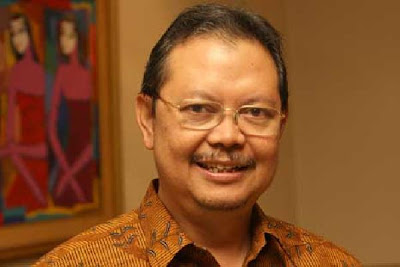Operators of most upscale hospitals have their own ways to lure patients amid increasing public demand for quality services. For instance, several hospitals offer services found at star-rated hotels. The layout provides comfort and the medical facilities are complete; in addition, the services offered are customer-oriented.
This means that besides medical treatment, services are also part of a hospital’s strength. Pondok Indah Hospital is one of the hospitals offering star-rated services and comfort, and the public response has been encouraging. Rapid progress in information technology has also spurred public demand for improved health services, which has kept Pondok Indah Hospital on its toes to meet public demand in every aspect. This lead to the hospital gaining hospital accreditation for 16 types of services from KARS and an ISO 9001: 2000 on quality management in 2005.
Meanwhile, Bintaro International Hospital in Bintaro Jaya, Tangerang, is uniquely designed like a three-story mall. Sunlight highlights the fountain in the spacious atrium of this hospital, the decor of which gives an impression of nature, spaciousness and brightness, all aimed at providing psychological comfort to patients so that their recovery is quicker.
Bintaro International Hospital is part of Ramsay Health Care Australia. This hospital opened on Oct. 12, 1998 with the operation of a clinic of specialists with 20 consulting rooms. The hospital started accepting in-patients on Nov. 2, 1998. MH Thamrin International-Salemba Hospital was built as a hotel-styled hospital and offers comfortable in-patient facilities, such as air conditioning, hot water in the bathrooms, color TV with local and international channels. MH Thamrin International-Salemba Hospital claims its operating theaters are among the most complete in Jakarta.
It has five operating theaters (one special sterile room for endoscopy) and one room for post-surgery recovery. Each room has medical equipment and oxygen system in keeping with international standards to guarantee an optimum safety level.
One of the major hospital to be opened in the not-so-distant future is Siloam Hospitals Semanggi. Planned as a full service secondary hospital with a focus on cancer detection, prevention and treatment called Mochtar Riady Comprehensive Cancer Centre (MRCCC), construction of this hospital will be completed in early 2009.
MRCCC will include breakthrough technologies and equipment and the most up-to-date facilities in Indonesia supported by internationally trained oncology specialists. Siloam Hospitals Semanggi is expected to be the first hospital in Indonesia to use an integrated computerized system and the digital information system linked with pathological imaging, pharmacy and information system services of the hospital.
The hospital, to be called “Building of Hope” will be a specialized hospital with 29 floors and 210 beds. It is located close to Aston Hotel and Plaza Semanggi in downtown Jakarta. Siloam Hospitals Semanggi will also apply for accreditation to the US-based Joint Commission International (JCI) when operational. In Indonesia, the construction of international-standard hospitals has sparked controversy. Many have a negative opinion of such hospitals though many also support them.
Indeed, there is no official standard for international hospitals. Instead, there is only a stipulation made on the basis of research, and even this differs from country to country. Every country has its own accreditation system. Progress and globalization have led to the expectation that all hospitals are standardized. International-standard hospitals have sprung up because of competition.
“They want to show that their hospitals are of the same level as those overseas,” Dr. Herman of Rumah Sakit Pondok Indah said. A question worth posing is whether a local hospital is worthy of the title “international hospital”.
In response, Dr. Herman said, “In my opinion, there is no such thing as international labeling. If we wish to use the label of ‘international’, we must have set standards, right? So, one of these standards is the ISO. This means that those with ISO 9001:2000 certification are already in the international standard category. However, if a hospital claims to be an international hospital but has yet to meet the criteria set by the ISO, it may not be of international standard but simply call itself international,” he noted. (Iwan Suci Jatmiko)
The Jakarta Post, July 19, 2007












